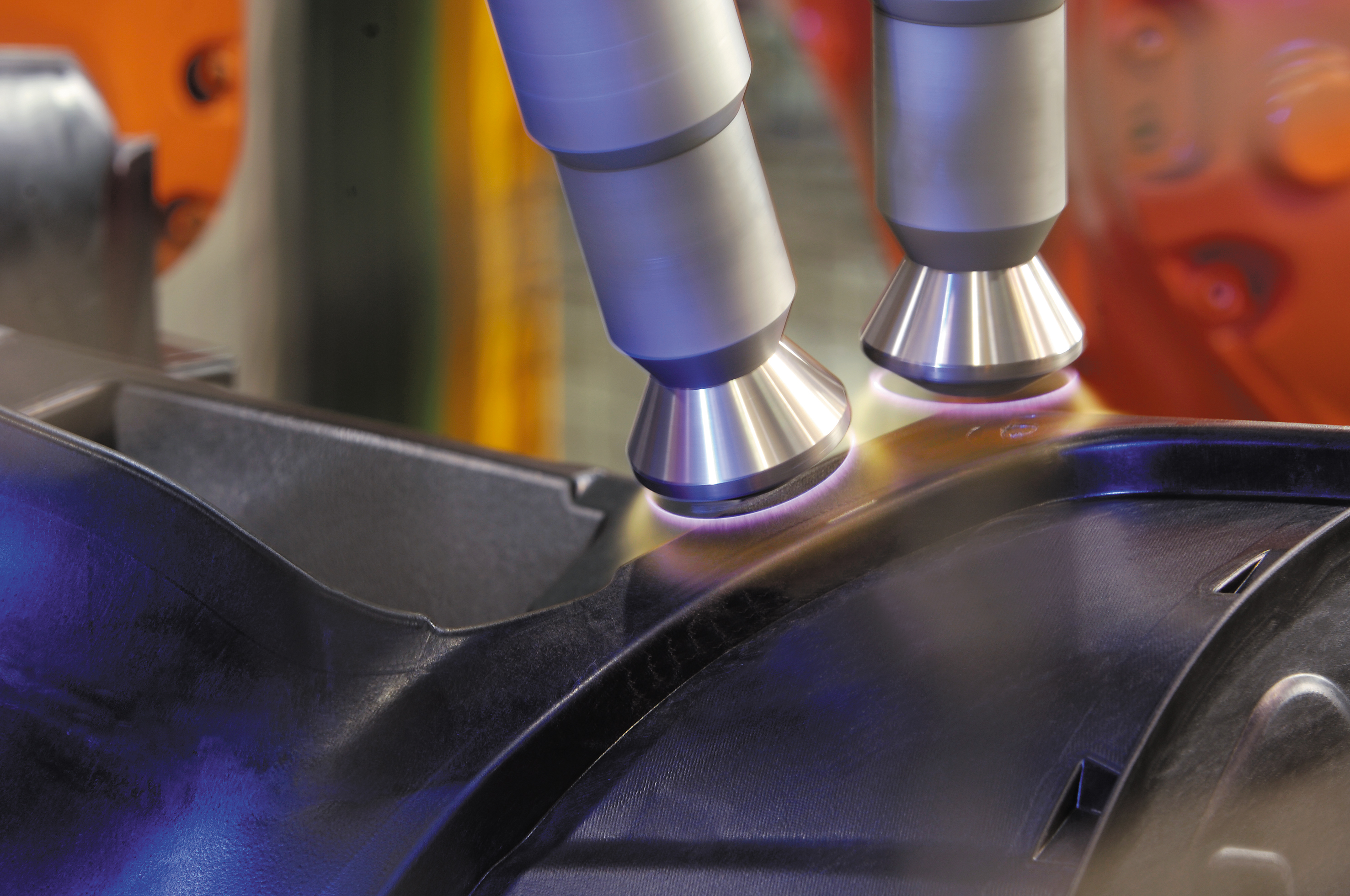
Plasmatreat GmbH says that it will showcase its surface technology at plastics processing event Fakuma, taking place in Friedrichshafen, Germany, from 12-16 October 2021.
This includes its Openair-Plasma treatment during which groupings containing oxygen and nitrogen are introduced into non-polar plastics to increase the surface energy. This activation can help increase the wettability of the surface, increasing adhesion and enabling adhesives, paints and coatings.
Plasmatreat’s PlasmaPlus technology involves applying nanocoatings to surfaces, such as the company’s PT-Bond coating. During this process, an organo-silicon compound is added to the plasma as a precursor. According to the company, the PT-Bond layer can increase the adhesion of both the substrate and the adhesive.
The company also reportedly offers an InMould-Plasma process where activation takes place inside the injection mold itself. This process is suitable for producing compatible plastic compounds from incompatible hard-soft material combinations using two-component injection molding. While it is generally use with combinations based on thermoplastic polyurethane (TPU) and polypropylene (PP), the process can also be used to bond other material combinations, Plasmatreat said.
This story uses material from Plasmatreat, with editorial changes made by Materials Today.


